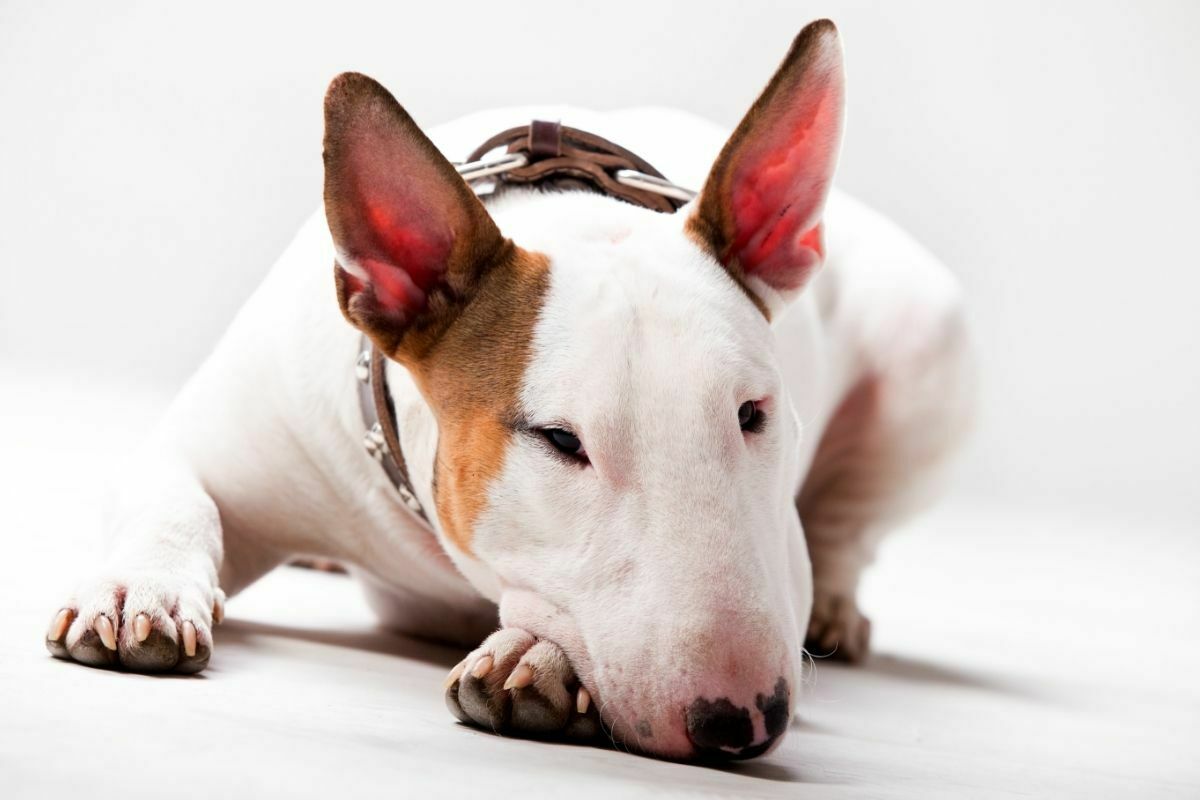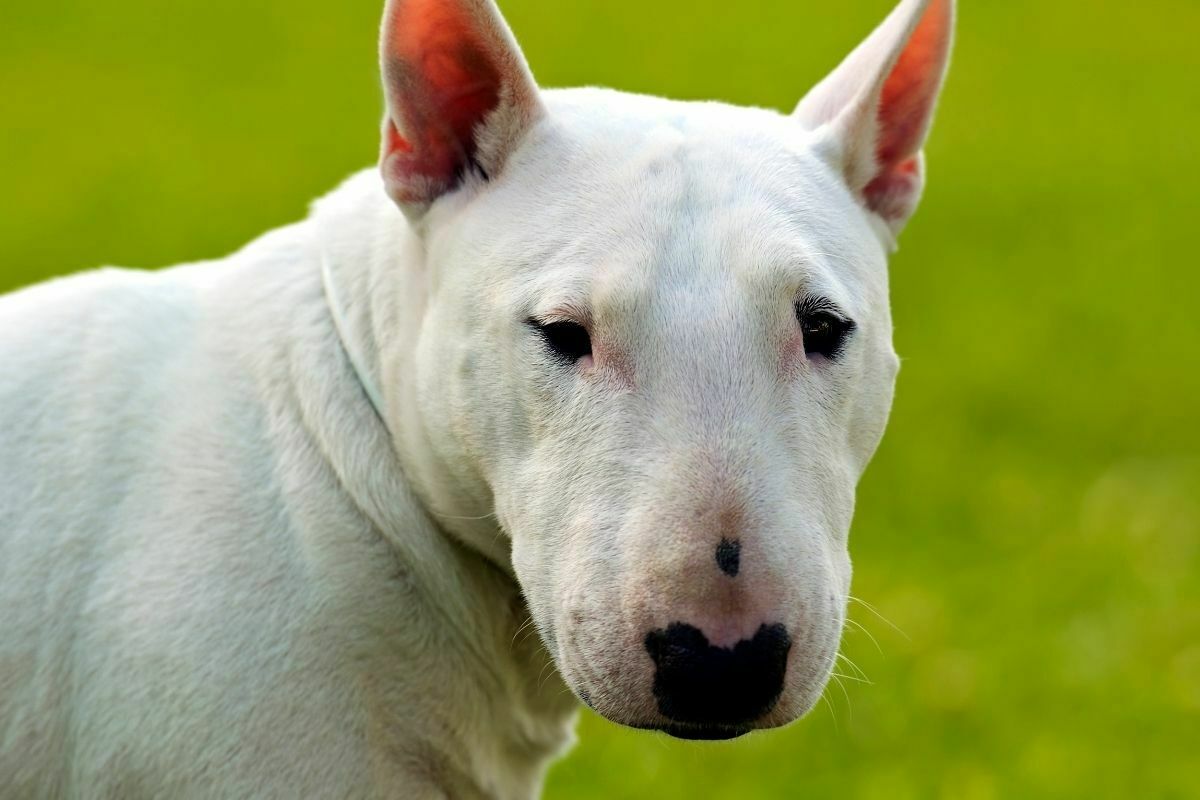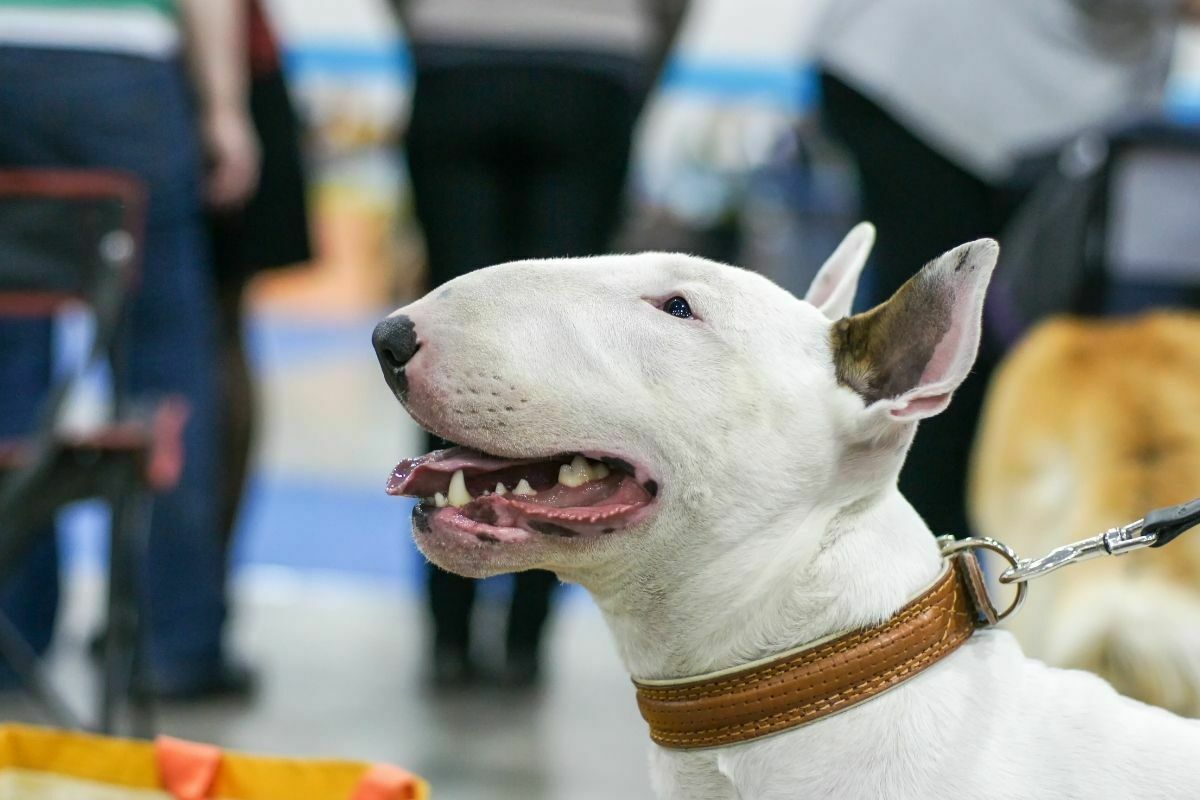Bull Terriers are known for their strong personalities and protective natures and are also considered to be very friendly dogs, which makes them an ideal addition to any home. But, are Bull Terriers hypoallergenic?

This is what we’re here to help answer. In this guide, not only are we going to be talking you through whether, or not, Bull Terriers are hypoallergenic, but we are also going to be providing you with some additional guidance on how to keep allergies at bay?
Let’s jump right in!
What Does It Mean If A Dog Is Hypoallergenic?
A dog is said to be hypoallergenic if it doesn’t cause allergic responses in most people. Allergies occur when a person’s immune system reacts negatively to an allergen, such as pollen or dust mites.
Symptoms like sneezing, coughing, watery eyes, and itching may develop when this happens.
If you think your dog might be causing allergy-like symptoms, talk with your doctor about getting tested to pinpoint which allergen is causing a reaction so that you can take the necessary medication to treat it.
At the time of writing, hypoallergenic breeds currently include the Bichon Frisé, Maltese, Pekingese, Shih Tzu, Yorkshire Terrier, and Toy Poodle. These breeds tend to have shorter coats and less hair, which makes them easier to care for.
The AKC (American Kennel Club) says that these breeds are “generally free of the major allergens found in other breeds.” Due to this, it makes them an ideal option for anyone looking for a dog that suffers from animal allergies.
What Is A Bull Terrier?

The Bull Terrier breed was developed in England during the 19th century and today it’s still popular as a family pet. It has been used for hunting, guarding livestock, and even police work.
This dog can be very friendly to strangers but should not be left alone with children or other pets because they are known to have a tendency to bite. They are also prone to being aggressive toward other animals such as cats and dogs.
Bull Terriers are considered to be one of the most intelligent breeds of dogs. However, they do require a lot of exercise and training so that they don’t become bored.
They are generally good-natured and easygoing but they may get excited when playing with toys or running around. This makes them great guard dogs since they will alert you if someone enters your home without permission.
In addition to all of the above, they need plenty of human interaction and socialization. They enjoy having their ears scratched and love to play fetch.
If you want a dog that is playful, active, and loyal, then this might very well be the right breed for you. This brings us to our next point.
Are Bull Terriers Hypoallergenic?

Due to the fact that Bull Terriers regularly shed their coats, they are not deemed to be hypoallergenic. To follow on, the American Club (AKC) has not classified Bull Terriers as being hypoallergenic, which means they may cause allergic reactions in some people who are prone to sensitivities.
For this reason, if you (or another member of your household) suffer from sensitivities to the dander released by dogs, then you might want to consider opting for a dog that is going to be more suitable.
It’s also worth noting that the size of a dog also contributes to how hypoallergenic they are. Bull Terriers are medium-sized breeds of dogs, which means that they produce more allergens than breeds that are smaller than them.
As a side note, it is also important to note that no dog can ever be 100% hypoallergenic – as dogs can also release allergens via their dandruff and saliva.
With that being said, regardless of which breed of dog you do decide to get, you will need to make sure that you are making the necessary adjustments to keep your allergies at bay.
How To Reduce The Amount Of Shedding In Bull Terriers
Shedding is normal for all dogs, especially puppies. But, some breeds shed more than others, and this is the number one culprit for allergies! If you’re planning on welcoming a Bull Terrier into your home, here’s how to stop your dog from shedding:
- Step One – Brush your dog regularly. You can use a natural bristle brush or a synthetic brush. Make sure you brush the entire coat, including the undercoat.
- Step Two – Keep your dog clean. Bathe him once every two weeks. Use a shampoo formulated specifically for dogs.
- Step Three – Don’t let your dog sleep on dirty bedding. Dirty bedding can lead to skin irritation and allergies.
- Step Four – Try to keep your dog away from fleas. Flea infestations can trigger an allergic reaction in your dog.
- Step Five – Keep your dog out of direct sunlight. The sun causes dryness and itching which leads to hair loss.
- Step Six – Give your dog a bath after he sheds. After bathing, give him a thorough grooming session to remove loose hairs.
- Step Seven – Avoid using harsh chemicals on your dog. These products can irritate his skin and cause further problems.
Wrapping Up
There we have it! Thanks for taking the time to read through this guide. Ultimately, Bull Terriers are not considered to be a hypoallergenic breed of dog because they frequently shed their coats.
Due to this, means that there is a higher risk of dander being spread around the home due to loose hairs, and this can raise the chances of an allergic flare-up in those who are sensitive.
That being said, that doesn’t mean that you shouldn’t get a Bull Terrier, as many dog owners who suffer from allergies find that they are able to live harmoniously with their furry counterparts after making a few lifestyle adjustments.
On the other hand, if you are particularly sensitive to dogs, then you should consider opting for a breed of dog that is going to be less likely to cause any allergic flare-ups. Thanks for reading!
